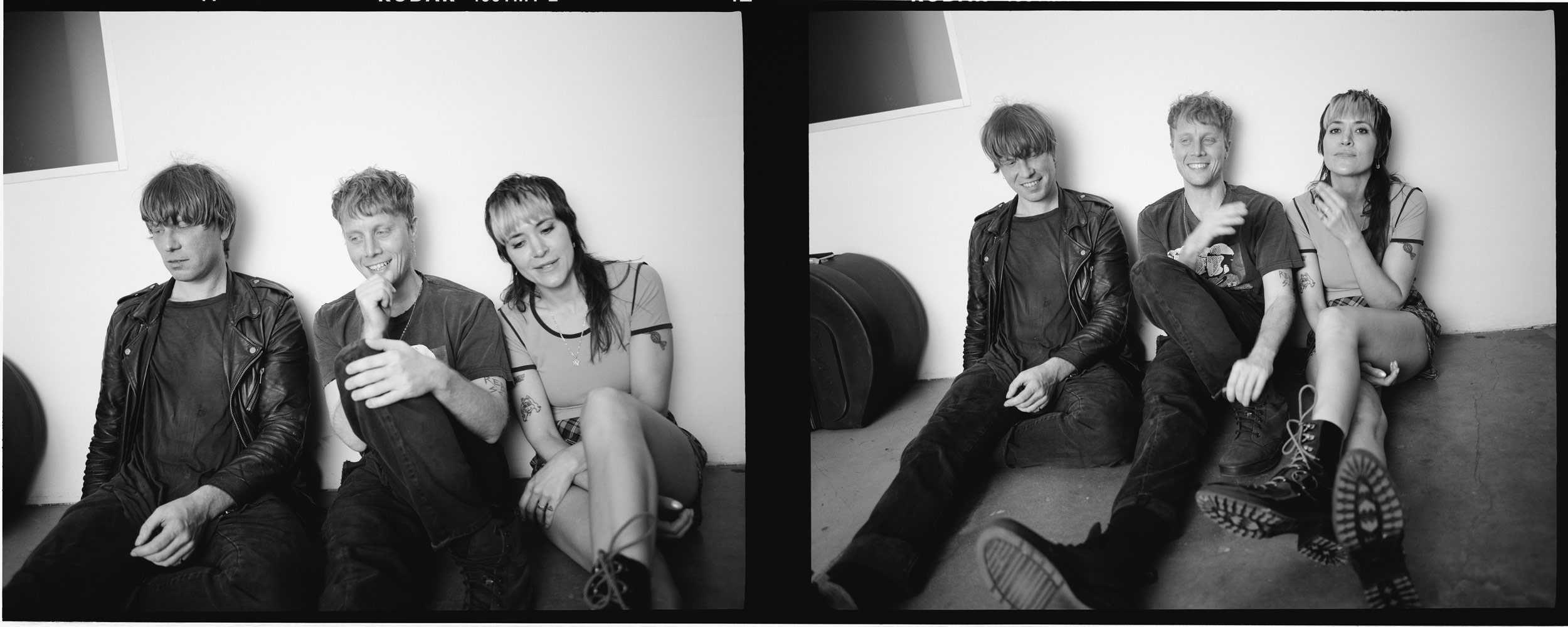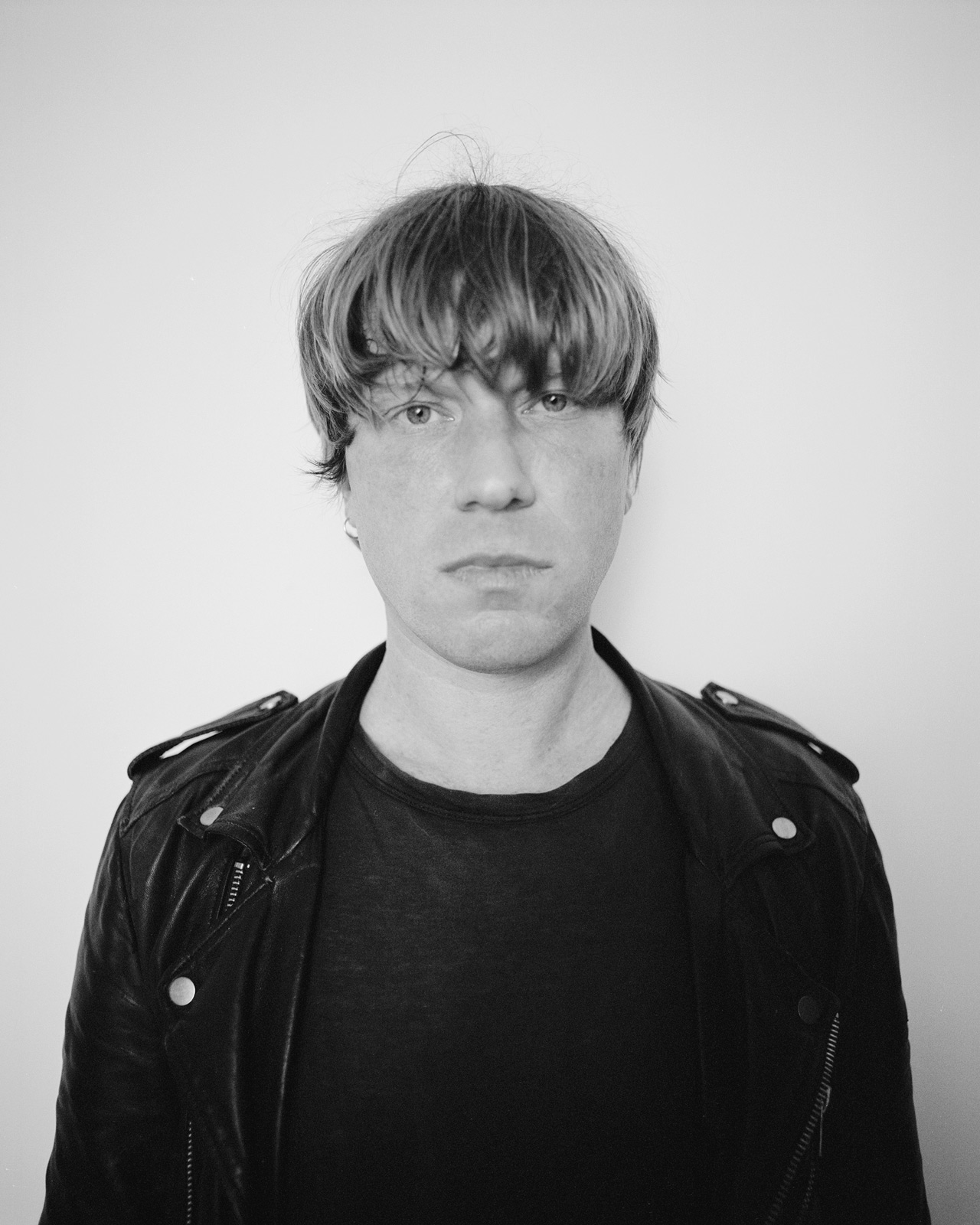Ahead of taking their record on the road, Melissa Scaduto and Brady Keehn join Document to consider the state of modern music
Sextile’s Push is dense in its influences: Josh Wink, Screamadelica, Iggy Pop, Goldie, early XL Recordings, Bad Bunny, ’90s Fantazia raves, Brian Eno, to name just a few. Most surprising, perhaps, though believable once you think to look for it—Christmas carols. It’s an unexpected admission from an underground project that is usually dressed in leather, with vehement punk ideals and club sensibilities.
Cool is often associated with critical, which is often associated with a sort of rigidity in taste. But what makes Sextile cool—what makes them modern and interesting and individual—is their affinity for finding allure in essentially anything they stumble across. They are aggressively open-minded about music, about prospective starting points and references. They prize experimentation over all else, boldly stepping into unfamiliar sonic territory until they find what works.
Their latest record, Push, is exemplary of that practice, traversing genres and moods and paces within each and every song. It’s the first record since the tragic passing of the band’s Eddie Wuebben in 2019. The years since then saw Sextile members focusing on solo projects: Melissa Scaduto on S. Product, Brady Keehn on Panther Modern, and Cameron Michel on visual artworks.
Their reunion carries the energy of the past, and some. Push is a dance record. Its press release promises serotonin—and it delivers. But that serotonin doesn’t derive from something as neat as joy. It’s a catharsis, a web of emotional magnets that may pull you in different directions, depending on what’s closest. It’s a physical experience, one that Sextile has been training for. “Our shows are like doing jumping jacks for 50 minutes straight,” Keehn says, which is why he’s taken up boxing ahead of their tour. Scaduto, for her part, is not supposed to be physically active, because of knee problems from a motorcycle accident. “That’s not going to happen,” she states, matter-of-factly, still sore from ignoring medical advice at a gig the week prior.
The members of Sextile pour everything into their music, and somehow even more into their shows. Ahead of taking Push on on the road, Scaduto and Keehn join Document to consider the state of modern music.
Megan Hullander: Is writing a song that’s danceable something tangible you can work toward, or is it more instinctive?
Melissa Scaduto: It becomes instinctive—we know it’s a good song because we feel an emotional response to it. There’s a song on the record called ‘No Fun.’ It’s a dance song. And it’s a bit angry. But there’s a part of it that makes me want to cry. And that’s when I knew, This must be good.
Brady Keehn: There are these melodies that make us cry—they’re almost nostalgic. The melody in ‘New York’ is like a child with a toy box: ding ding ding ding ding ding ding ding. And I think the melodies across these tracks are like that: very high-pitch, a toy box type of thing. It’s interesting that the melodies that make us emotional are like that. For me, Christmas music will do it; it has that same childlike [quality]. Why are our melodies so childlike and nostalgic? Are we nostalgic for our childhood? I’m not sure…
Melissa: Everyone is always trying to heal their inner child. That’s [when] the formidable, traumatic events happen that make us into a person.
But it’s interesting, Brady, that you bring up Christmas, because you’ve always hated Christmas.
“There’s a part of it that makes me want to cry. And that’s when I knew, This must be good.”
Brady: I like the music. I hate the holiday.
Melissa: I always get a tree and want to do gifts and the whole thing. And I’m not a religious person. I find God through music. But Brady’s like, ‘How can you even like this? You’re not religious and you hate capitalism.’ True—my dad hates Christmas, and raised me to be anti-religion. But I love the joy, the togetherness, the buying gifts for your friends.
Brady: I went to Catholic school and it was shoved down my throat. She got lucky.
Megan: I wouldn’t have necessarily clocked carols as an influence, but it’s easy to peg the different eras of music you tap into. I wonder what about this record feels tied to the current moment?
Brady: The need to be pigeonholed in a specific genre or sound is kind of unnecessary in 2023. And we hear other bands doing this, as well, [where] an album has an ambient track, it has a hip-hop track, it has a trip-hop, dubstep, punk. And I think what we’re seeing happening is the internet manifesting itself in reality, where we have access to all these different types of music and are able to ingest it [all]. We’re not just going to a certain record store, where there’s this record-head who’s pushing his punk dreams on all the kids coming in.
Melissa: That is not what it was like. I worked at record stores for years and spent a lot of time in them. Record stores never just pushed one thing. I think the shame of the modern day is that we only have Spotify to suggest to us, based on an algorithm, based on what we listen to, and it generally doesn’t suggest something new. When I lived and breathed record stores, I was always referred to something new and exciting.
Brady: I think this record was us trying to experiment, and find out where our strengths in some of these sounds were. And I think we’re going to keep doing that until we know, There it is.
Melissa: I think what you’re saying is we basically didn’t limit ourselves. There were some songs we didn’t finish because we were like, Well, this is not a great version of reggaeton, or whatever.
Brady: There was a reggaeton track on the record for a while.
“This record was us trying to experiment, and find out where our strengths in some of these sounds were. And I think we’re going to keep doing that until we know, There it is.”
Melissa: As we know, within fashion and most culture, people keep remaking everything every 20 years. In music now, with hyperpop and all these kids into all kinds of shit, there are these artists working with subculture who are huge. We need to embrace that. It’s weird to me, when I see people doing these blatantly 1960s bands. Although, I just went down this rabbit hole watching old videos of The Who performing, and I was inspired by it. I mean, they’re kind of like a punk band, with how manic and wild their energy was. But I still wouldn’t want to make a band that sounds like The Who now, because it doesn’t make sense. It’s already been done. And I’m gonna make a better version of that.
Megan: I think with The Who, it’s the emotional resonance that feels timeless. Like, the way that they’re all trying to outperform each other is an energy that still feels tangible.
Melissa: It feels like a collective joy that they’re experiencing together—to be out there wiling out. And I also think, in the late-’60s, what other band was up there just destroying shit? And Keith Moon is like a manic little child. As someone who’s played drums, I don’t understand how you move that crazy and still play. I can’t wrap my head around it. Those sticks and those songs are attached to his whole body and his whole self.
And I don’t see that often, because I sort of take pride in the punk ideals that you don’t have to become a good musician to make good music. A lot of people have impostor syndrome. And they’re like, Well, I would love to be in a band, but I’m not good at this. And it’s all bullshit. You just decide, This is what I want to do. And you’ll figure out what you’re good at.
Brady: That’s how politicians become politicians. You’re like, Alright, what’s a politician? Okay. Hey, guys, I’m running.
Melissa: That’s a pretty dark picture of politics.
Brady: Want to be a criminal? Just go steal some shit. That’s everything. That’s life.































